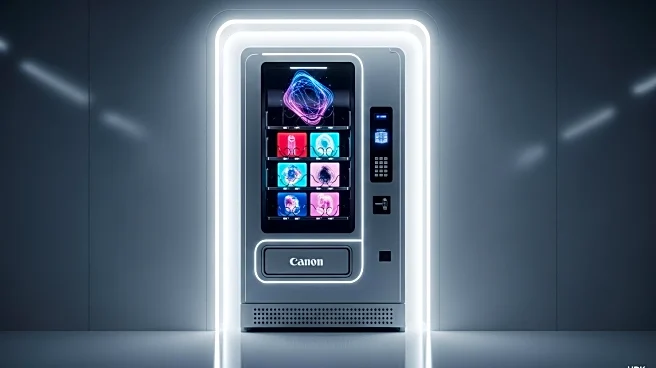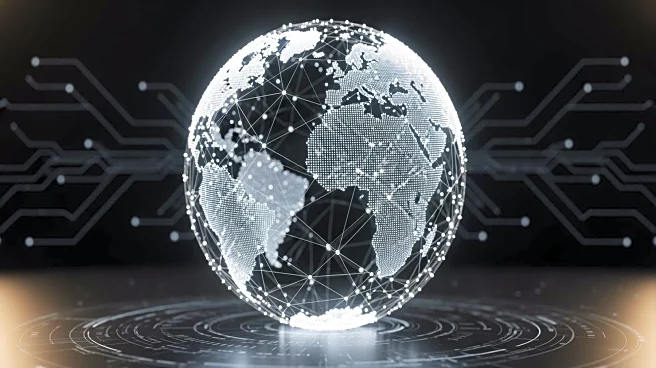What's Happening?
The vending machine market is experiencing significant growth, with projections indicating it will reach $37.2 billion by 2032, according to a report by Allied Market Research. The market was valued at $18.3 billion in 2022 and is expected to grow at a compound annual growth rate (CAGR) of 7.5% from 2023 to 2032. The beverages vending machine segment is a major driver of this growth, fueled by the increasing demand for ready-to-drink and packaged beverages. Innovations such as facial recognition, self-inventory, energy-saving, and cashless payment systems are enhancing the efficiency and appeal of vending machines. Additionally, the integration of Internet of Things (IoT) technology is enabling real-time data collection and improved consumer experiences.
Why It's Important?
The growth of the vending machine market reflects broader trends in consumer behavior, particularly the demand for convenience and quick service. As vending machines become more technologically advanced, they offer businesses new opportunities to engage with consumers and streamline operations. The shift towards digital payment options and IoT integration is likely to enhance consumer satisfaction and operational efficiency. This growth also indicates potential for increased employment and economic activity in the manufacturing and technology sectors, as companies innovate and expand their product offerings.
What's Next?
The vending machine market is expected to continue evolving with advancements in technology and consumer preferences. Manufacturers are likely to focus on further innovations, such as voice recognition and interactive display systems, to enhance user experience. The market may also see increased competition as new players enter, driven by the lucrative growth prospects. Additionally, the impact of global events, such as the COVID-19 pandemic, on supply chains and consumer behavior will be closely monitored, potentially influencing market dynamics.
Beyond the Headlines
The rise of vending machines also raises questions about the future of traditional retail and service industries. As automated solutions become more prevalent, businesses may need to adapt their strategies to remain competitive. Ethical considerations regarding data privacy and security in IoT-enabled machines will also become increasingly important as these technologies are adopted.









